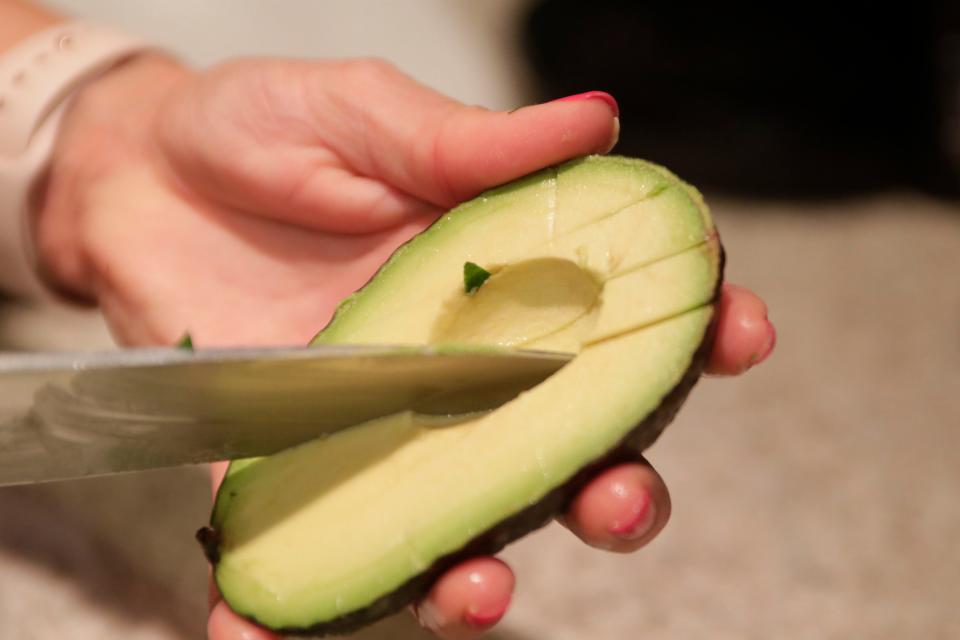Make lifestyle changes to maintain a healthy blood pressure | Mahoney
According to the United States Preventive Services Task Force estimates, high blood pressure affects around 45% of adults in the U.S. Because high blood pressure is so common, it might be tempting to assume that it’s not a big problem.
But the truth is that when left untreated, high blood pressure can put you at risk for potentially life-threatening complications.
Past columns have focused on various aspects related to high blood pressure.
Cauliflower power: From pizza to rice, Cauliflower is a contender in vegetable popularity contest
Rethink routine: Feeling stuck in an exercise rut? Rethink your routine, get outside | Anna Jones
Today’s column has a focus on lifestyle interventions that can assist us in controlling blood pressure and help to mitigate its negative consequences. Dietary intervention is one of the positive approaches that are covered in today’s column.
Access the links at the end of the column for a more encompassing look at high blood pressure including the importance of controlling blood pressure earlier in life.
Thanks to Medical News Today for much of the content in today’s column.

Diet
Managing the diet can be an effective way of preventing and treating high blood pressure.
Plant-based foods
A nutritious, balanced diet includes plenty of fruits and vegetables, vegetable and omega oils, and good quality, unrefined carbohydrates, such as whole grains. People who include animal products in their diet should trim the fat off and avoid processed meats.
Lowering salt intake
Experts recommend reducing salt consumption and increasing potassium intake to manage or prevent high blood pressure. The American Heart Association recommends that people limit their salt intake to no more than 2,300 milligrams (mg) a day and preferably reduce it to 1,500 mg. On average, individuals in the U.S. currently consume more than 3,400 mg of sodium daily.
Nutritious fats
In moderation, plant-based sources of fats, such as avocados, nuts, olive oil, and omega oils, can provide benefits. People should limit their intake of saturated fats and trans fats, common in animal-sourced and processed foods.

The DASH diet
Health experts recommend the DASH diet for people with high blood pressure. The DASH diet focuses on an eating plan that emphasizes whole grains, fruits, vegetables, nuts, seeds, beans, and low fat dairy products.
Which foods are good for reducing blood pressure? Find out by going to medicalnewstoday.com.
Alcohol
One study in women indicated that consuming some alcohol may help lower blood pressure. However, others report the opposite, noting that even drinking a moderate amount might increase blood pressure levels.
People who regularly drink more than moderate amounts of alcohol will almost always experience elevated blood pressure levels.
Caffeine
Studies into the relationship between caffeine and blood pressure have produced conflicting results. A report published in 2017 concluded that a moderate intake of coffee appears to be safe for people with high blood pressure.
Home remedies
The American Heart Association (AHA) recommends a range of lifestyle adjustments that can help reduce blood pressure, such as:
managing stress
quitting smoking
consuming a nutritious diet
getting exercise
following any treatment plan the doctor prescribes
Discuss any planned lifestyle changes with a healthcare professional before introducing them.

Regular exercise
The AHA notes that most healthy people should do at least 150 minutes of moderate-intensity physical exercise a week. This could be 30 minutes — or three sessions of 10 minutes a day — 5 days per week.
This amount of exercise is also appropriate for those with high blood pressure.
However, a person who has not exercised for a while or who has a new diagnosis should speak with their qualified health professional before starting a new physical activity program to ensure it is suitable.
Losing weight
Studies have revealed that losing as little as 5–10 pounds in weight can help reduce blood pressure.
Weight loss will also improve the effectiveness of blood pressure medications.
Methods of achieving and maintaining a moderate weight include getting regular exercise and following a diet that emphasizes plant-based foods. A person should also limit their intake of fat and added sugars.
Sleep
Increasing sleep alone cannot treat hypertension, but too little sleep and reduced sleep quality may make it worse.
A 2015 analysis of data from a Korean national health survey found that people who had less than 5 hours of sleep per night were more likely to have hypertension.
Natural remedies
According to the National Center for Complementary and Integrative Health (NCCIH), the following may help lower blood pressure:
meditation, yoga, qi gong, and tai chi
biofeedback and Transcendental Meditation
supplements such as garlic, flaxseed, green or black tea, probiotics, cocoa, and roselle (Hibiscus sabdariffa)
However, the NCCIH adds that there is insufficient evidence to confirm that these can make a difference.
It also warns that some supplements can have adverse effects, such as raising blood pressure or interacting with medications. The organization states that meditation and exercise therapies are usually safe, but some poses may not be suitable for people with high blood pressure.
Anyone considering an alternative therapy should speak with a qualified health professional first.
Check out some tips for for lowering blood pressure naturally at medicalnewstoday.com.
Additional information
Go to the following link provided by Medical News Today which provides details on many facets of high blood pressure (hypertension) at medicalnewstoday.com/articles/150109
A list of some of the risk factors for high blood pressure provided by the Centers for Disease Control and Prevention (CDC) are available at cdc.gov/bloodpressure
Young people who have moderate to high blood pressure that gradually rises over time may be at risk for poor brain health later in life, researchers found. See details from the study at jamanetwork.com.

Mark Mahoney has been a Registered Dietitian/Nutritionist (R.D.N.) for over 35 years and completed graduate studies in Public Health at Columbia University. He can be reached at marqos69@hotmail.com.
Never miss a story: Subscribe to the Tallahassee Democrat using the link at the top of the page.
This article originally appeared on Tallahassee Democrat: 12 ways to keep your blood pressure at a healthy level

